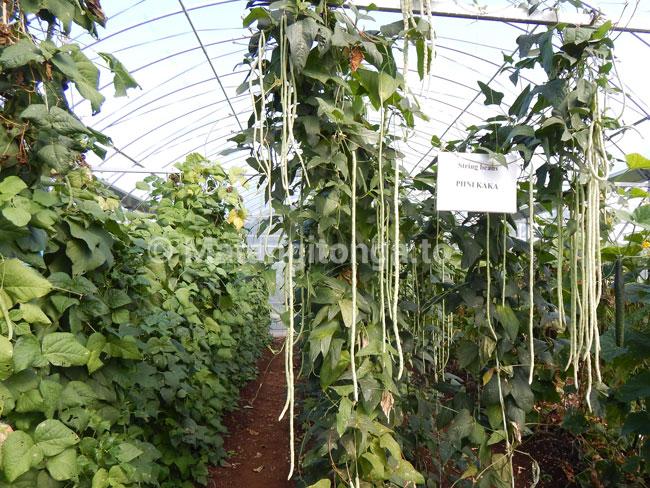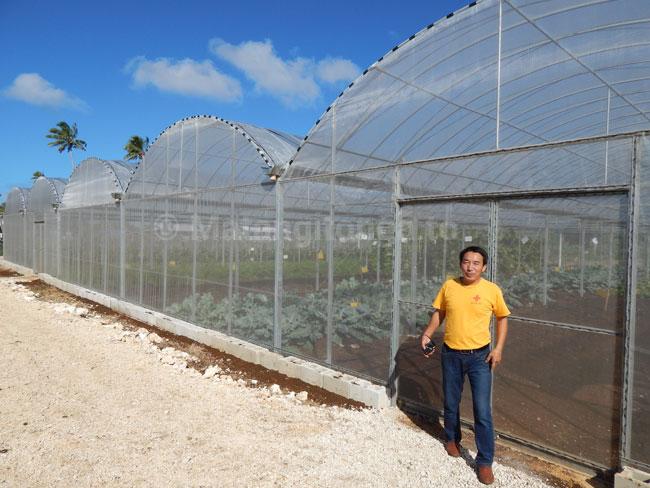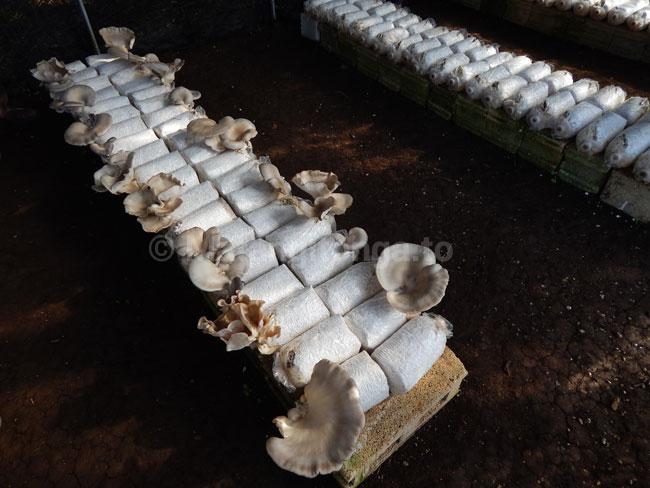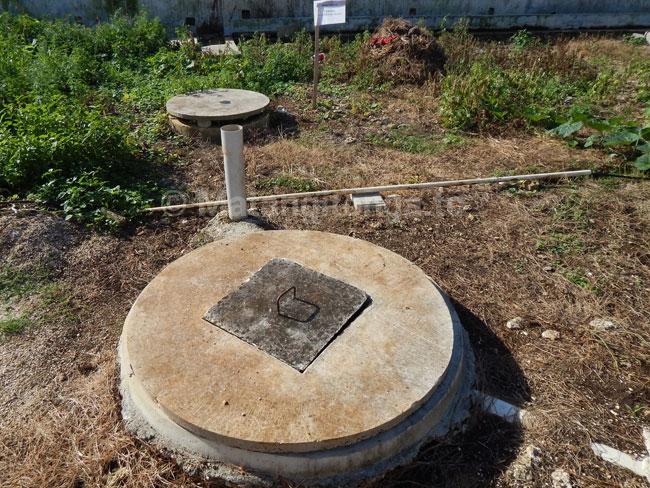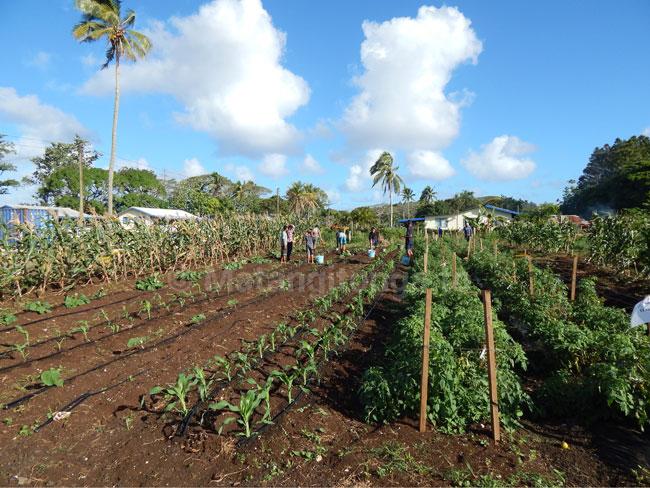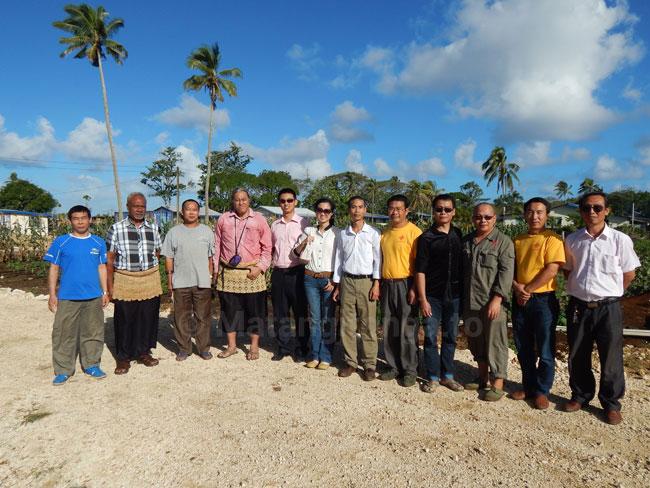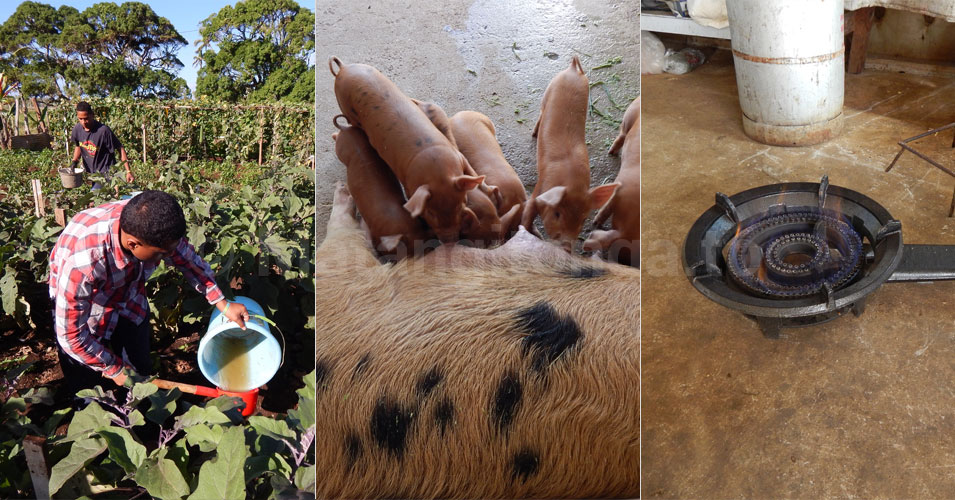
By Eleanor Gee
A goal of year round agricultural harvesting of top quality organic vegetables is within reach for Tonga, except that farmers need to understand just how valuable pig shit really is in order to achieve this. A remarkable method of “biogas farming” using pigs and their waste to produce high yield top quality produce could transform subsistence farming incomes. It’s been demonstrated that a properly run biogas farm in Tonga can earn $200,000 or more a year - yet the opportunity is not being fully realized.
Who would have thought that pig manure and other animal waste could turn any average farmer into a successful one, ticking all the boxes of sustainable farming, being eco-friendly, combating climate change, no use of harmful pesticides, contributing to the economy and growing healthy foods in the fight against NCDs - the lifestyle diseases that are caused by eating the wrong food.
Pig waste is one of the key ingredients in biogas farming that is turned into methane gas for cooking and organic liquid fertilizer - rich in nutrients to feed plants - that could enable Tongan farmers the chance to significantly boost their incomes.
Since 2010, biogas demonstration farms have been set up in Tonga with assistance of the Chinese Government for research and training purposes and on Tongatapu and Vava'u they are thriving.
Pigs favoured
There are already 13 biogas systems installed in Tonga with China Aid for local farmers.
But Tongan farmers are focusing on growing pork meat, being the favourite national dish of Tonga and eaten at the majority of social gatherings and functions. So much so, that all but two of 13 current biogas farmers in Tonga don’t grow vegetables to complete the biogas cycle.
Dr Viliami Manu, Acting Director at the Ministry of Agriculture told Matangi Tonga that unfortunately farmers are not taking advantage of planting vegetables to be able to earn three to five times more income than they can achieve from the sale of pigs and meat.
“Biogas is a great project although trying to get Tongans to use this method of farming is difficult,” he said this week.
Tupou College demo
Although the Chinese do not reveal how much aid funding is involved, a large chunk has been invested on expertise, with up to 30 Chinese agricultural experts working on the project, over the last six years providing training in all aspects of biogas farming.
Mrs Xu Ye, at the Chinese Embassy in Tonga, said that one of the most recent demonstration farms located at Tupou College is a gift to the school from the Chinese Government, which was established last July.
“The farm is used for training the students in the biogas farming method. And Tonga’s Ministry of Agriculture also uses it for local farmers to learn a new way of farming so they can farm their own land,” she said.
How biogas works
Biogas is a clean and gaseous fuel that is similar to LPG but solely produced by the fermentation of organic matter.
Organic matter such as waste from a piggery or other livestock (it can also include household by-products such as market waste and kitchen waste) is gathered into a large tank. Bacteria in the tank break down the raw waste through the process of anaerobic digestion, producing a flammable gas called biogas.
The flammable gas is collected in a separate tank and piped to a kitchen for gas stove cooking. The remaining waste exits the biogas system in the form of liquid organic fertilizer into another tank where it is retrieved by buckets and used to water plants.
Plants grown with the organic fertilizer are free of chemicals and are used for human consumption as well as pig feed to complete the cycle.
Organic fertilizer produces a superior quality of fruit. For example, the seedless watermelons grown in the demonstration farm are the most delicious you will find anywhere in Tongatapu.
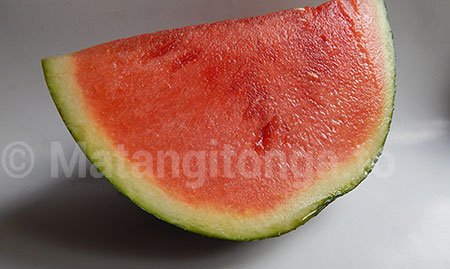
Student’s biogas project
Eight Chinese Agriculture experts currently live on Tongatapu providing regular on-site maintenance and repair services for the biogas project.
Mr Xu Cungui, Chinese Team Translator for the team said that they are happy to teach Tupou College students how to produce organic fertilizer, to use farming machinery such as a hand held plough, and how to plant and harvest crops with no use of pesticides as well as rearing pigs.
After school, students get to work feeding plants with organic fertilizer drawn from tanks using buckets. They also help out in the pig pens.
The 4,000m2 farm is covered with vegetables such as seedless watermelon, broccoli, capsicum, string beans, cucumber, eggplant, bush beans, cauliflower, Chinese spinach, onion, Chinese cabbage, musk melon or rock melon, tomatoes, pumpkin, corn and mushroom.
There is no doubt that organic fertilizing results in top grade produce where vegetables such as broccoli can weigh up to 1.5kg each and cucumber up to 1kg each at the time of harvesting.
In addition, plants for feeding pigs are also grown such as lettuce, Mexican sugar cane and herbaceous vegetation such as grass.
Mr Cungui said that these plants were chosen due to being cost effective, as once planted they are harvested many times for many years.
The plantation has already proved it can produce a large yield for consumption. Around 800kg of vegetables were harvested recently for the 150th anniversary celebration of Tupou College.
Currently, gas from the biogas system is piped to a kitchen and used for cooking by the Chinese Agriculture team.
Mr Peni Moliteka, Farm Manager at Tupou College said that there are plans to also run the gas pipes to the school kitchen for cooking, as the farm is big enough to supply more gas.
“It will be easier for the students as they won’t have to gather wood to start a fire for cooking,” he said.
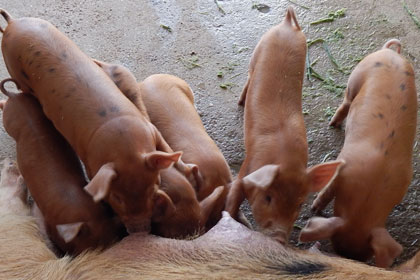
Rich benefits
Dr Viliami Manu said that farmers using the biogas system method would have a sustainable supply of pigs meat for food or for sale, biogas for cooking, light and heating water, supply of liquid organic fertilizer, and a sustainable production and supply of vegetables.
A rough projection shows that one mature pig will produce enough biogas for one mature person in a household.
He added that a biogas farm run properly could earn up to $65,000 per annum from selling pigs meat from two mature pigs slaughtered and sold per week and around $200,000 plus per annum from producing and selling vegetables.
Proof of the value of this type of farming was confirmed with the Ministry of Agriculture observing a private Chinese family currently operating a biogas farm in order to show the true value of the system.
He said that vegetables are proving to be more beneficial with higher earning as it provides a daily cash income compared to selling pig meat as pigs need to grow to between 8 to 12 months before it can be slaughtered and sold.
“These skills, drive and commitment can be transferred to Tongan farmers. Tonga can be a better world with MAFF’s priority to boost local meat production and also vegetable production in a sustainable way,” said Dr Manu.
The demonstration farm is a great example for Tongan farmers to realise the importance of the complete cycle, although trying to get Tongans to use this method of farming remains difficult because of the focus on the pigs.
Another challenge is that the establishment cost of a biogas system is too high relative to the current earning of farmers.
It is believed that assistance from the Tongan Government in the form of loans would go a long way if done properly.


